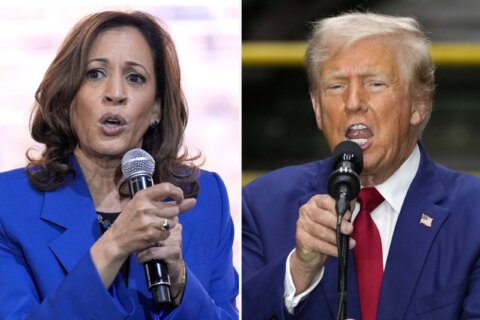WASHINGTON — Heading into Election Day, polls nationally showed Hillary Clinton ahead of Donald Trump by about 3 percentage points.
Twenty-four hours later, Clinton was ahead in the popular vote by about a tenth of a percentage point. But it was Trump who secured the electoral college votes needed to win the White House.
“This was the political stunner of a lifetime,” said Bob Cusack, editor-in-chief of The Hill. “She was the overwhelming favorite.”
So what went wrong with the polling?
Pollsters are still trying to figure that out, said Steve Shepard, chief polling analyst for Politico.
He said the polls were off the most in Midwestern states like Michigan and Wisconsin where less-educated, white voters may have turned out in greater numbers than pollsters expected.
But Trump also had stronger support from college-educated voters than pre-election polling indicated. Politico even ran an experiment to better gauge college-educated voter sentiment last week. They found those voters were slightly more willing to admit they’d vote for the billionaire in an online survey and less willing to admit that support to a live person who calls them on the phone, Shepard said.
He defended the polling, however, saying the overall miss was smaller than in 2012. But the predictions went in the wrong direction and in some states, the spread was larger, he said.
“We all were shocked,” said Daniel Lippman, co-author of Politico’s Playbook.
A survey of Playbook’s readers — influential people who work in politics — resulted in just 15 out of some 800 responses who predicted Trump would actually pull off a victory, he said.
“The (polls) didn’t capture the extent of anger and frustration, how things are going in the country,” Lippman said, nor the intense hope for change that Americans were seeking.
Anxiety over Clinton’s ethics and her handling of her emails further hurt Clinton, who was the establishment candidate again this election year, and likely doomed her, he said.
“Despite his troubles in the fall and various controversies, (Donald Trump) appealed to a lot of people who wanted change. And if you look at the polls, and these polls are accurate, 7 out of 10 Americans want change,” The Hill’s Cusack said.





